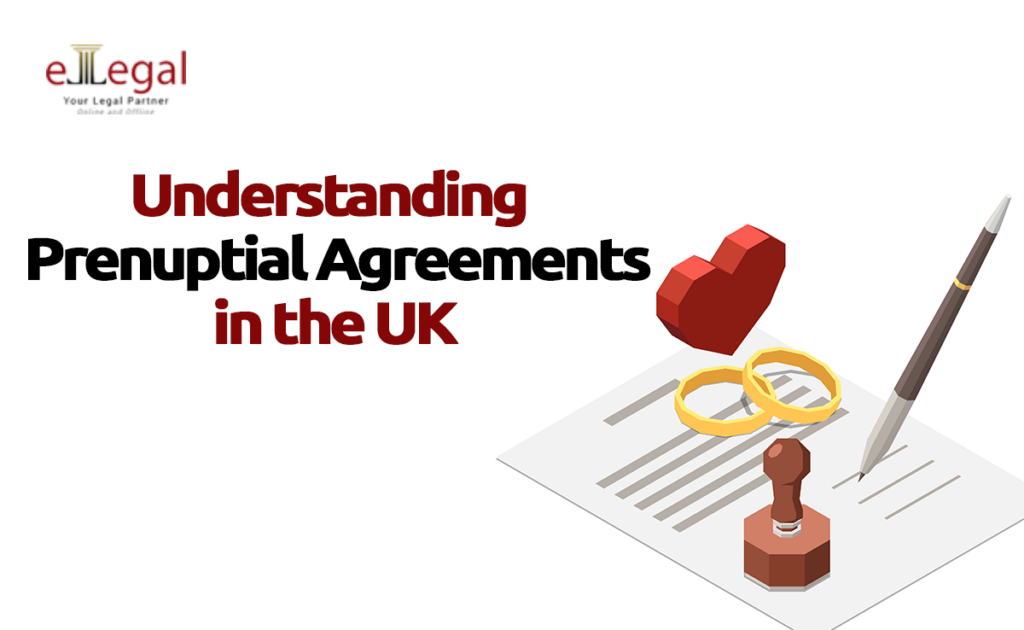When we think of marriage, we often picture a beautiful day filled with love, joy, and promises of a lifetime together. However, before embarking on that lifelong journey, couples may want to consider some practical matters, particularly concerning finances and assets. This is where prenuptial agreements come in.
In the UK, prenuptial agreements, often referred to as “prenups”, are a topic that tends to stir up mixed emotions. While some view them as unromantic or pessimistic, others see them as a necessary tool to protect their interests and ensure clarity in case of separation. So, what exactly are prenuptial agreements in the UK, and how do they work? Let’s take a closer look at everything you need to know.
What Are Prenuptial Agreements?
A prenuptial agreement is a legally binding contract that two people enter into before they get married or form a civil partnership. The agreement outlines how assets, finances, and other matters will be dealt with in the event of a divorce or separation. The main objective of a prenup is to protect the financial interests of both parties, ensuring that any preexisting assets, inheritance, or business interests are safeguarded.
While it’s often assumed that prenuptial agreements are only for the wealthy, they can be useful for individuals of all financial backgrounds. They can help clarify expectations around property, savings, debts, and even spousal support. It’s all about creating a sense of security for both partners as they enter into their marriage or civil partnership.
Prenuptial agreements have long been a common practice among high-profile individuals. Many public figures have reportedly used them as a means of securing their financial interests. Once seen as something only for the wealthy, prenups are now recognized as a practical tool for couples seeking financial clarity and protection.
In recent years, prenuptial agreements have become increasingly common in the UK. Recent data shows a steady rise in the number of couples opting for them. This growing trend is influenced by factors such as later marriages, an increase in second marriages, and a greater focus on safeguarding assets, businesses, and inheritance that existed before the relationship.
Why Consider a Prenuptial Agreement in the UK?
- Protecting Individual Assets
If one partner is entering into the marriage with substantial assets, such as property, investments, or a business, a prenuptial agreement can help protect those assets in case of divorce. For example, if you own a family business that you want to keep in the family, a prenup agreement can ensure that it remains outside of any potential divorce settlement.
- Clarifying Financial Expectations
Prenuptial agreements can be used to establish clear guidelines about how financial matters will be handled during the marriage. This could include how debts are divided or how income and savings are managed. This can help avoid misunderstandings or disputes down the road.
- Protecting Future Inheritances
If you’re expecting to inherit money or assets from family members, a prenuptial agreement can help ensure that those assets are protected. In the event of a divorce, any inheritance you receive will be treated as your personal property and won’t be divided between you and your spouse.
- Avoiding Costly Divorce Battles
In the unfortunate event that a marriage ends in divorce, a prenuptial agreement can help simplify the process. By clearly defining how assets should be divided, a prenup can help prevent lengthy, expensive court battles over financial matters.
- For Civil Partnerships
A prenuptial agreement is not only for married couples. Those entering into a civil partnership in the UK may also consider signing a prenuptial agreement. Just like marriage, a civil partnership involves shared financial responsibilities, and a prenup can help define the division of assets in case of separation or dissolution
Are Prenups Legally Binding in the UK
Pre-nuptial agreements are not automatically enforceable in courts in England and Wales.
Historically, they were considered unenforceable because they were seen as against public policy. However, in a key ruling in 2010, the Supreme Court decided that courts should uphold a pre-nuptial agreement if both parties freely agreed to it, fully understanding its consequences, unless it would be unfair to do so.
This ruling doesn’t make all pre-nuptial agreements binding; each case will be judged on its fairness. But now, some pre-nuptial agreements will be enforced if there are no unfair circumstances.
The key factor here is fairness. In most cases, if a prenup agreement was entered into freely and with proper legal advice, the court will give it significant weight during divorce proceedings. However, the final decision on asset division will depend on various factors, including:
- The welfare of any children involved
- The financial needs of both parties
- Any significant change in circumstances since the agreement was signed (e.g., a change in income or health)
For instance, if one party enters into the marriage with significantly more assets than the other, the court may still override the prenuptial agreement to ensure a fair outcome for both parties, particularly if the agreement would leave one party in a financially vulnerable position.
Therefore, while a prenuptial agreement in the UK can provide clear guidance, it’s important to understand that it doesn’t guarantee a specific outcome in every situation.
Steps in Creating a Prenuptial Agreement
- Consult a Prenuptial Agreement Attorney
Given the intricacies of drafting a prenuptial agreement, it is essential to seek the advice of a prenuptial agreement attorney. A qualified lawyer will ensure the agreement adheres to legal standards, is equitable, and safeguards your interests.
- Full Financial Disclosure
Both parties are required to provide a thorough and honest disclosure of their financial details. This includes assets, debts, income, and any other pertinent financial information.
- Customizing the Terms
The terms of the prenuptial agreement should be specifically designed to reflect your unique situation and future financial goals. This may include provisions for spousal support, property division, and how debts will be managed.
- Review and Adjustments
After the initial draft is completed, both parties should carefully review the agreement with their own legal advisors. Any necessary changes should be made to ensure the agreement is fair and mutually agreeable.
- Final Signing
The prenuptial agreement should be signed by both individuals well before the wedding or civil ceremony. It is advisable to have the signatures witnessed to ensure the document’s validity.
Consulting with a family lawyer is essential to ensure the agreement is accurately drafted and executed, offering clarity, protection, and peace of mind for both parties. At eLegal Consultants, our experienced family lawyers are here to guide you through the process, ensuring your prenuptial agreement is thorough, fair, and customized to your needs. Reach out to us today to learn more about how we can assist you.
Conclusion
Prenuptial agreements in the UK are a useful tool for couples who want to protect their financial interests and clarify expectations before marriage or entering into a civil partnership. While not automatically binding, a well-drafted prenup can offer significant protection and clarity, helping to avoid conflict and disputes in the future.
If you’re considering a prenuptial agreement, it’s important to seek legal advice, ensure full financial disclosure, and make sure the agreement is fair and reasonable. While no one wants to think about divorce when they’re planning their wedding, a prenup can provide peace of mind and protect your interests in case things don’t go as planned. For more information, contact us today.




